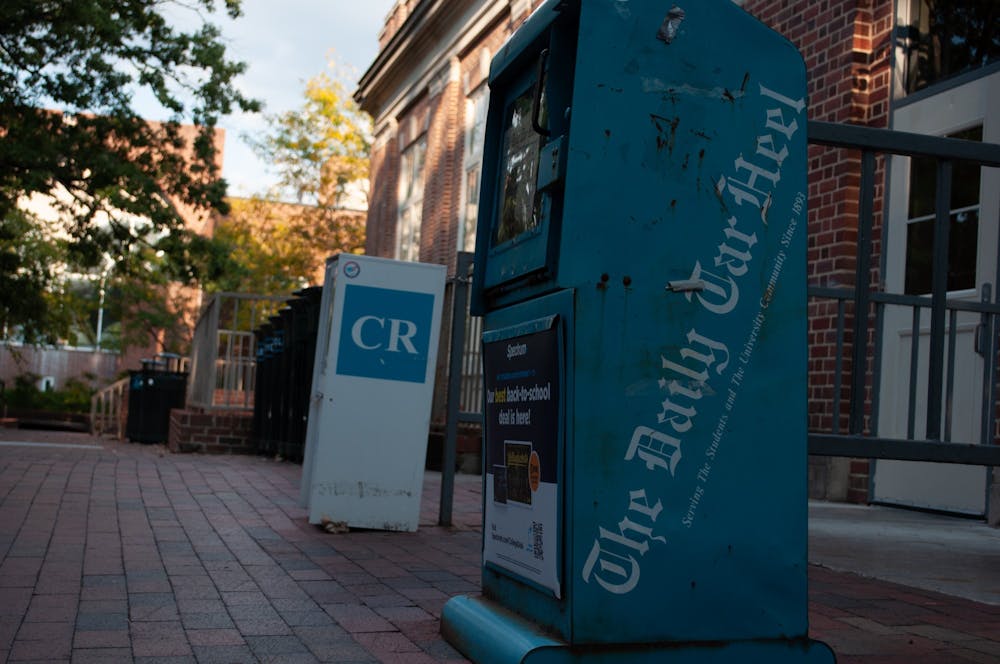The doctrine asserts that an institution — in this case, the University — should remain neutral on issues of the day. It should not take stances as a collective institution on topics that may be perceived as politicized or controversial.
“The University is the home and sponsor of critics,” the Kalven Report states. "It is not itself the critic.”
UNC BOT member Perrin Jones, who introduced the July Kalven Report resolution, said the goal was to promote more civil conversation around controversial issues without a “chilling effect” from the University or department heads taking a position.
“You really want the University to be a forum for free and open discussion,” said Jones. “And if you end up putting your finger on the scale, as it were, then I think it's difficult for that free and open discussion to occur.”
UNC’s Faculty Council adopted the Chicago Principles — also developed at the University of Chicago — in 2018. This document is a general affirmation of the basic free speech principles protected by the First Amendment, specifically applied to college campuses. Bonilla calls the report an “exclamation point” on top of existing free speech law.
The Chicago Principles have been adopted by dozens of Universities across the country, but Bonilla said UNC is one of the first universities outside of the University of Chicago — if not the only one — to adopt both these principles and the Kalven Report. Because of this, he said there is not much precedent for how some of the questions raised by the report will play out.
What are the applications for free speech at UNC?
The Kalven Report does make an exception for allowing public statements when the issue in question threatens “the very mission of the university and its values of free inquiry.”
Chairperson of the Faculty Mimi Chapman said a potential example of this exception would be if the University made a statement on affirmative action in admissions, since the outcome of the ongoing Supreme Court case on the subject will have a dramatic impact on University operations.
But the line of what threatens the University’s mission is unclear. Mark McNeilly, a professor in the Kenan-Flagler Business School who has been involved in free speech research, said the areas where this is applicable are slim.
And it’s also unclear, Chapman said, when faculty are allowed to speak out from within their position at the University. She said that she and other University employees have been concerned about faculty being silenced when speaking out on current issues.
Kate Maroney, a UNC spokesperson, said the University in no way prohibits faculty members from speaking out on their work and research — or as individuals. The only restriction, she said, is that faculty are not permitted to issue statements speaking on behalf of the University.
To get the day's news and headlines in your inbox each morning, sign up for our email newsletters.
“Academic freedom and freedom of speech are not special privileges,” Chancellor Kevin Guskiewicz said in a statement. “They are a profound foundational responsibility, and we will defend those freedoms as long as we are in existence.”
What does this mean moving forward?
At its meeting on Sept. 9, the Faculty Council adopted a resolution affirming faculty members’ right to speak out given their academic and research expertise on a particular matter.
UNC law professor Michael Gerhardt said at the meeting that clarifying when a faculty member is speaking for themselves, not for the University, is helpful for affirming their protection under the First Amendment.
But McNeilly said that regardless of where the statement is officially coming from — from the dean of a school as the dean, or as an individual— it can be hard to separate the two.
“Can I go out and express (my opinion) in a meeting with them if I know that they believe the exact opposite of what I think?” McNeilly said.
Bonilla said that while they are statements of values more broadly, the Chicago Principles and the Kalven Report are also policy documents that can hold universities accountable if free speech promises are violated.
Jones said that at the BOT’s scheduled meeting at the end of September, the board will be discussing what the implementation of these ideas will look like at UNC, Jones said.
“It is a fairly simple and clear statement of values,” Bonilla said. “But it is also, at UNC and any number of other institutions, a kind of contract between the university and the community — something that it can be held to, and should be held to, when it comes up short of those promises.”
@hannahgracerose
university@dailytarheel.com




